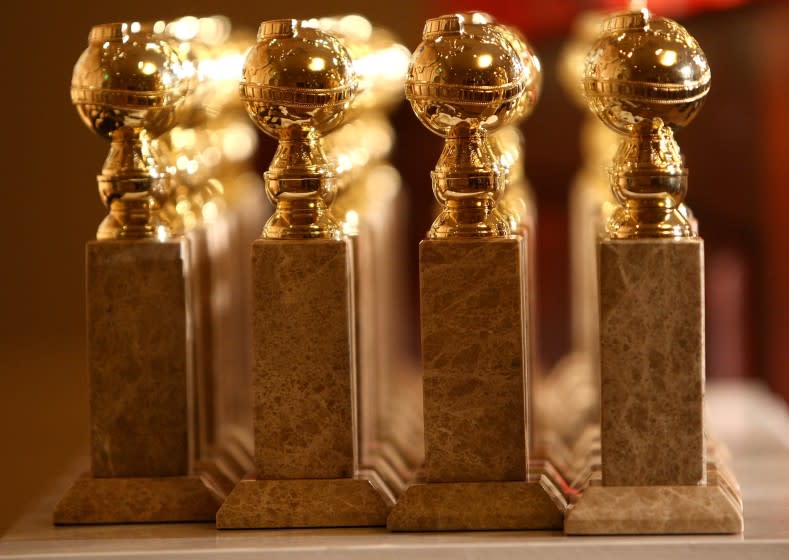Antitrust lawsuit puts Golden Globes org the Hollywood Foreign Press under fire

The Hollywood Foreign Press Assn. is the defendant in a new antitrust suit filed by a foreign journalist who has accused the organization of monopolizing the foreign entertainment reporting market.
Kjersti Flaa, a Norwegian journalist living in Los Angeles, filed a complaint Monday in California federal court alleging that the HFPA has adopted membership rules that exclude qualified applicants who compete with existing members. The suit alleges that applicants must pledge not to write for any rival publication claimed by an HFPA member and that foreign markets are allocated among the membership.
The HFPA, which called the claims "baseless," says they have not yet been served with the complaint.
The organization, which presents the Golden Globes every year, also was accused of using the ceremony as a way to monopolize opportunities to attend industry events or interview "hot" movie stars to the exclusion of other foreign journalists.
The complaint seeks to "enforce the right of fair procedure ... that affect a person's ability to earn a lawful living," "declare unlawful the provisions of the HFPA's bylaws" and "recover under applicable antitrust laws for the economic harm [Flaa] has suffered as a result of the defendant's unlawful conduct."
Flaa, who recently worked as a celebrity interviewer for Norway's "God Kveld Norge" ("Good Evening Norway") television program and also has posted work on YouTube, is represented by David Quinto, a longtime lawyer for the Academy of Motion Picture Arts & Sciences, which puts on the Academy Awards. In her lawsuit, Flaa alleges that she was sponsored for HFPA membership by French and Tunisian members before other members raised concern about competition in Scandinavia. She also claims that she was presented with an agreement committing to never compete with others in the Norwegian and Danish markets.
"The HFPA not only fails to offer a fair procedure for seeking membership, it does not even make a pretense for doing so," reads the complaint. "It also requires two votes of approval by the membership without providing any guidelines or standards for approving or rejecting applicants. It places no emphasis whatever on evaluating the quality of an applicant's work. Instead, it freely allows its members to base their admissions decisions on whether an applicant might become a competitive threat to an existing member."
"While the HFPA has not yet been served with this complaint, it seems consistent with Ms. Flaa’s ongoing attempts to shake down the HFPA, demanding that the HFPA pay her off and immediately admit her prior to the conclusion of the usual annual election process applied to every other HFPA applicant," the organization responded in a statement. "The HFPA has refused to pay ransom, telling Ms. Flaa that membership was not gained through intimidation. Ms. Flaa and her attorney are now asking a court to order her into the organization and pay her. The HFPA takes seriously its obligations as an organization and its dedication to foreign journalism and philanthropy, and it will vigorously defend against these baseless claims.


